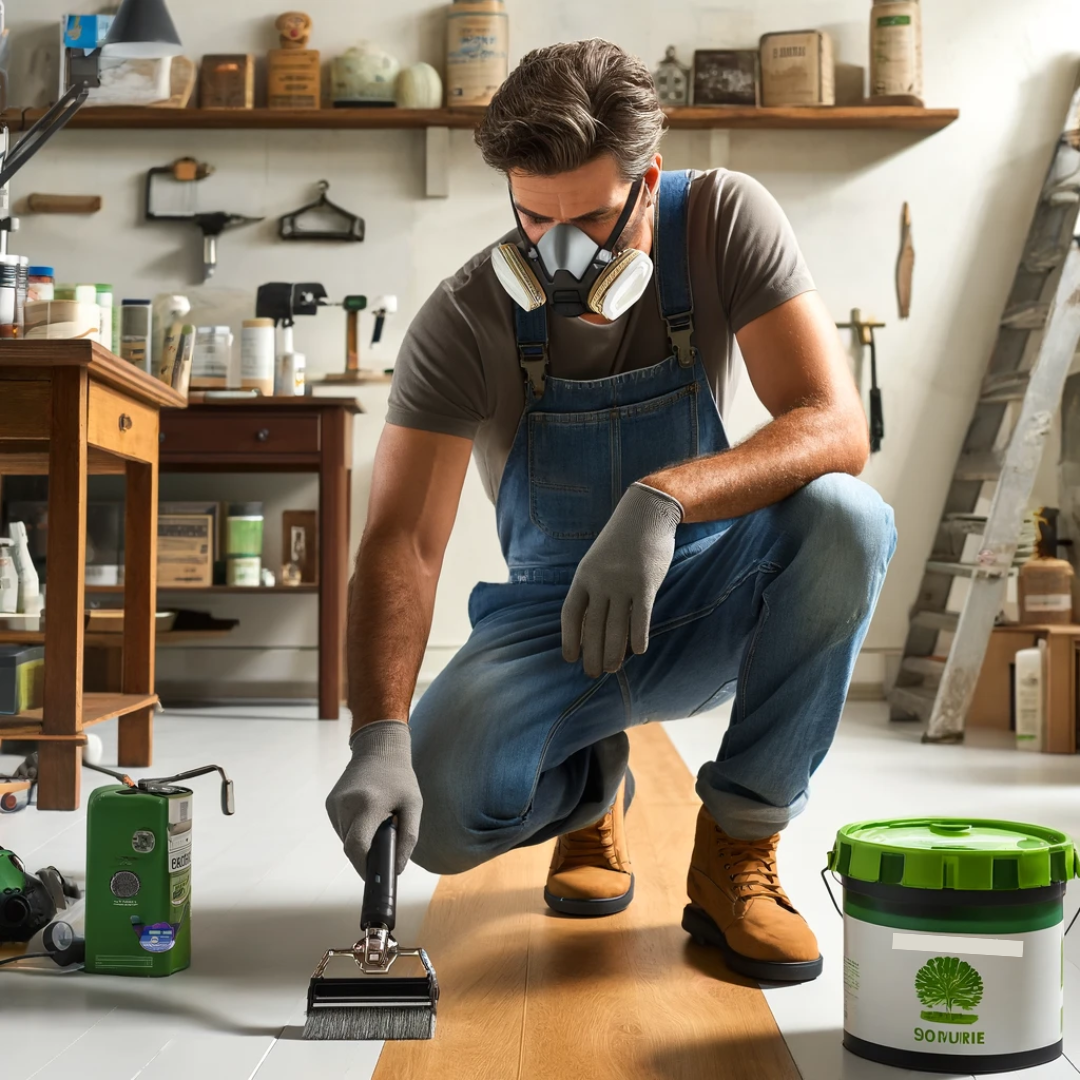
The Environmental Impact of Wood Floor Restoration
Top 5 Eco-Friendly Practices
As environmental awareness continues to grow, more businesses are seeking sustainable methods to carry out their operations without compromising on quality. In the realm of wood floor restoration, this shift towards eco-friendly practices is not just a trend but a crucial adaptation to protect our planet.
Here, we explore the top five eco-friendly practices in wood floor restoration, spotlighting effective products from Pallmann and Bona—two brands that epitomise commitment to environmental responsibility.
- Use of Sustainable Products
One fundamental step in reducing the environmental impact of wood floor restoration is using sustainably produced products. This includes selecting finishes and adhesives that are formulated to minimise harmful emissions and are derived from renewable resources.
For instance, Pallmann's Magic Oil 2K uses a blend of natural oils and waxes, offering durability and a beautiful finish while being VOC-compliant. This product exemplifies how restoration projects can achieve aesthetic goals and durability without sacrificing ecological concerns.
- Low-VOC Formulations
Volatile organic compounds (VOCs) are notorious for their negative impact on indoor air quality & the environment. Choosing products with low VOC levels is crucial for eco-friendly wood floor restoration.
Pallmann's Pall-X 96 is a prime example of a high-performance, water-based sealer with the prestigious Blue Angel certification, indicating compliance with stringent environmental, health, and performance criteria. Products like these ensure that floor restoration efforts are safer for both the planet and the spaces people inhabit.
- Efficient Resource Use
Efficient use of resources is essential to sustainable practices. This includes optimising product application to reduce waste and selecting products designed for longevity to decrease the frequency of refinishing.
Bona's range of eco-friendly products shines in this area. Their water-based finishes last long and dry quickly, reducing downtime and resource consumption. This approach not only enhances the efficiency of the restoration process but also diminishes the overall environmental footprint.
- Recycling and Waste Management
Proper recycling and waste management practices during wood floor restoration projects can significantly reduce environmental impact. This includes responsibly disposing of product containers and used materials and recycling old wood flooring when possible. Engaging in such practices ensures that materials are repurposed and diverted from landfills, aligning with broader environmental goals.
- Continuous Innovation
Lastly, embracing continuous innovation in product development and application techniques can lead to more sustainable wood floor restoration methods. Both Pallmann and Bona are at the forefront of this innovation.
Bona's continuous commitment to developing eco-friendly solutions that do not compromise on quality is evident across its product range. Meanwhile, Pallmann's Pall-X Zero, part of their zero-emission series, represents the pinnacle of eco-friendly innovation, offering superb results without the environmental toll.
Product Spotlight
Focusing on specific products, Pallmann's Magic Oil Change and Pall-X Zero, along with Bona's comprehensive eco-friendly range, showcase how advanced formulations and commitment to sustainability can come together.
These products not only meet the high standards of professional restorers but also cater to the growing eco-conscious market.
Using such products can significantly enhance the sustainability of floor restoration projects, making them ideal choices for contractors looking to differentiate themselves in a competitive market.
Adopting Eco-Friendly Practices
Incorporating these eco-friendly practices into wood floor restoration not only helps protect the environment but also caters to the increasing number of consumers seeking green alternatives.
By choosing products like those from Pallmann and Bona, you, the contractor, are able to offer services that are not only effective but also responsible—a win-win for both the business and the planet.
The shift towards eco-friendly practices in wood floor restoration is essential for sustainability. By adopting such methods and using products from responsible brands like Pallmann and Bona, contractors can significantly reduce the environmental impact of their work while still delivering high-quality results. This commitment to sustainability is not just good practice—it's a compelling business strategy that resonates with today's eco-aware clients.
